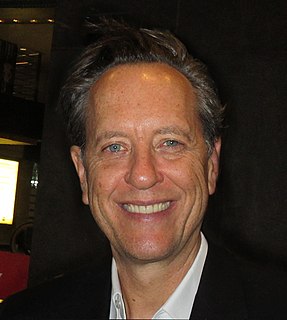A Quote by Robert J. Shiller
There is more uncertainty than usual about job futures because computers are replacing more and more human intelligence, and globalization is proceeding at an accelerating pace.
Related Quotes
Especially now, the immigrant problem is very dramatic around the world. Because we don't know what to do with them. They're in economic crisis, and there are more and more. There will be more and more. We speak about globalization of economy, but it's also globalization for immigration. Millions of people, they're willing to have a better life. A better life, they cannot have it where they live, so they move.
The unpredictability of the weather, the increasing possibility of intelligence introducing a species more powerful than ours, the growing uncertainty that animals can or should be slaughtered for our pleasure, has led many of us to start asking more complex questions about what is and isn't normal.
With genetic engineering, we will be able to increase the complexity of our DNA, and improve the human race. But it will be a slow process, because one will have to wait about 18 years to see the effect of changes to the genetic code. By contrast, computers double their speed and memories every 18 months. There is a real danger that computers will develop intelligence and take over. We urgently need to develop direct connections to the brain so that computers can add to human intelligence rather than be in opposition.
With both people and computers on the job, computer error can be more quickly tracked down and corrected by people and, conversely, human error can be more quickly corrected by computers. What it amounts to is that nothing serious can happen unless human error and computer error take place simultaneously. And that hardly ever happens.
When you're socially awkward, you're isolated more than usual, and when you're isolated more than usual, your creativity is less compromised by what has already been said and done. All your hope in life starts to depend on your craft, so you try to perfect it. One reason I stay isolated more than the average person is to keep my creativity as fierce as possible. Being the odd one out may have its temporary disadvantages, but more importantly, it has its permanent advantages.
Learning to explain phenomena such that one continues to be fascinated by the failure of one's explanations creates a continuing cycle of thinking, that is the crux of intelligence. It isn't that one person knows more than another, then. In as sense, it is important to know less than the next person, or at least to be certain of less, thus enabling more curiosity and less explaining away because one has again encountered a well-known phenomenon. The less you know the more you can find out about, and finding out for oneself is what intelligence is all about.
Right up till the 1980s, SF envisioned giant mainframe computers that ran everything remotely, that ingested huge amounts of information and regurgitated it in startling ways, and that behaved (or were programmed to behave) very much like human beings... Now we have 14-year-olds with more computing power on their desktops than existed in the entire world in 1960. But computers in fiction are still behaving in much the same way as they did in the Sixties. That's because in fiction [artificial intelligence] has to follow the laws of dramatic logic, just like human characters.




































